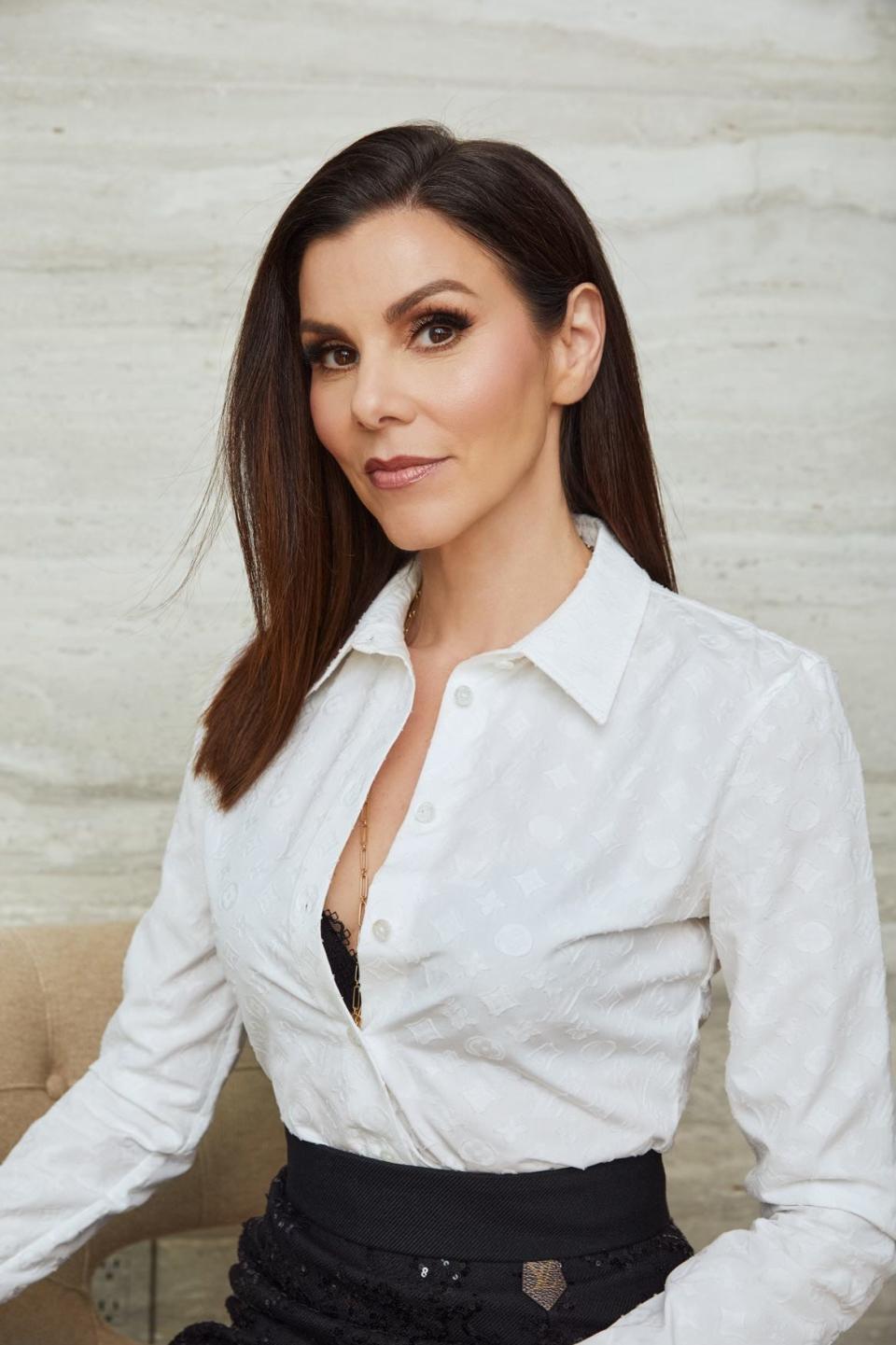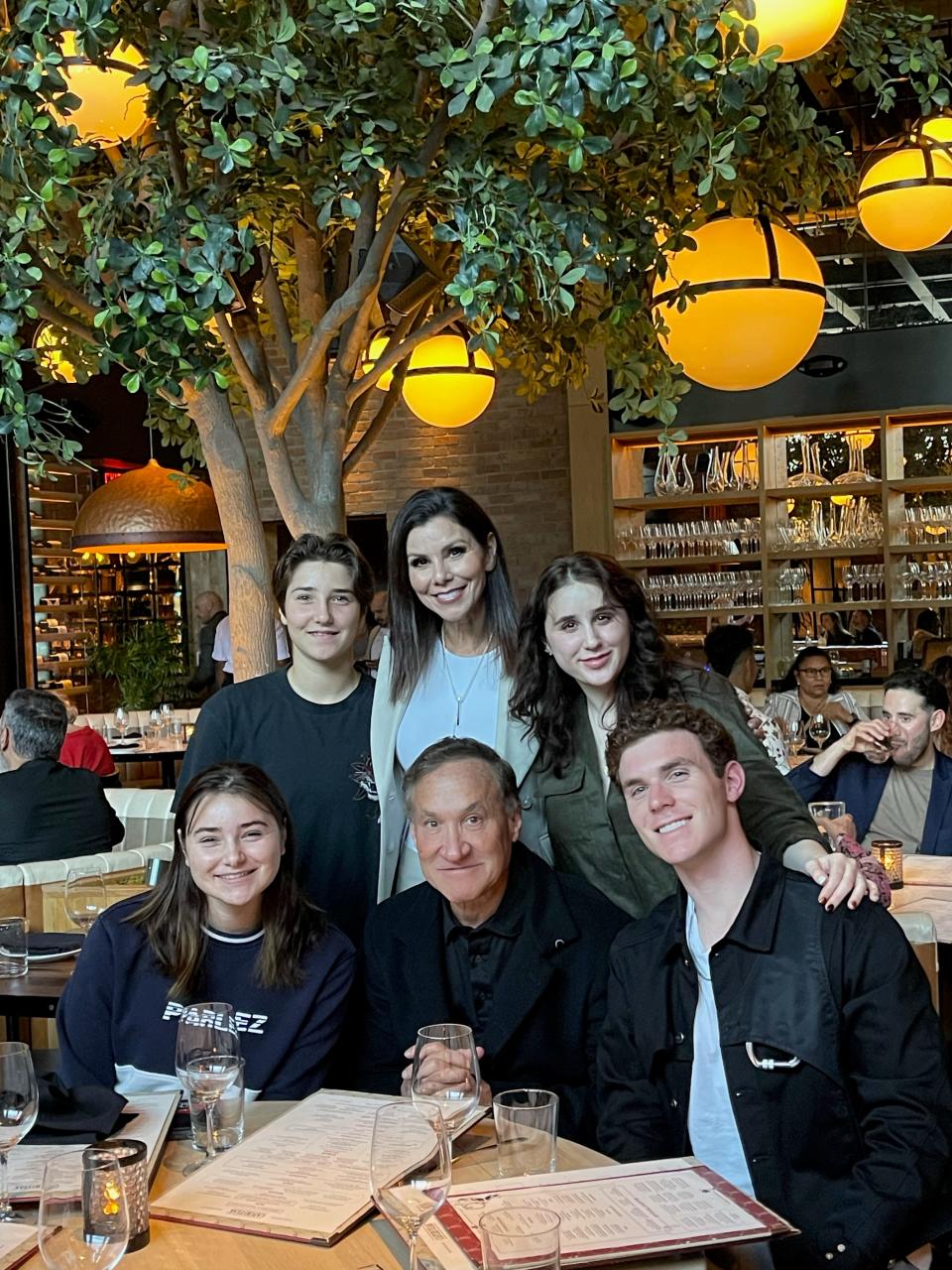Heather Dubrow has 4 kids and 3 are LGBTQ. What she wants you to know.
Heather Dubrow is a star of the "Real Housewives of Orange County." But she's also a star mother to her four children – three of whom identify as LGBTQ.
"I feel like I was given these kids for a reason," Dubrow, 54, says over a Zoom call from New York where she's promoting the latest season of "RHOC." "And what I really would love to do is to keep having conversations, and opening up conversations in other people's families."
Amid increasingly hostile anti-LGBTQ legislation, Dubrow aims to normalize families like hers to ensure progress toward acceptance doesn't dissipate.
This interview has been edited and condensed for clarity.

Question: Talk to me about being a parent to LGBTQ-identifying children.
Answer: I have four children, they're all different ages and sexualities, and genders. And they are 19, 19, 16 and 12. That is Nicky and Max, and Katerina, and Ace (who Dubrow shared was transgender on Instagram earlier this year). And I'm really very careful to make sure that my kids are all telling their own stories, and identifying as they wish, as they grow and figure out who they are as humans. Being a parent of these very unique children is – I'm so exceptionally proud. They're really, really good people, and turning into even better people and finding their places in this world.
Growing up and going into adulthood, and then becoming a parent, what was your relationship like with the LGBTQ community and your exposure?
Starting off in the theater, I had a lot of gay friends in high school. But people weren't obviously as out as they are now. And I also think that I had a lot of, especially male friends that didn't know who they were at the time. Because life was different, the space was different. And it wasn't something that was open to exploration at the time. I'm so proud that my kids are growing up in a world where you figure out who you are, and you love who you love, and you be who you inherently are meant to be. And the fact that I get to watch them, and guide them and help them, it's incredible. But yeah, it's a lot different than when I was growing up, for sure. And I'm happy for them. I mean, look, we've come very far. But obviously, there's a long, long way to go.
I'm wondering if you've been worried for your kids, being more in the public eye but also just with all the anti-LGBTQ legislation. What have conversations been like that you've had with them and as a family about this kind of uncertain future?
We live in California, we're in a coastal state. It's different all over the country. But I will say for my kids and their friends, they're so different. They're so cool. They're so open, they're so fluid, they're all so accepting. It's my generation that's the problem. Do I worry for them? Of course I do. Will they be loved? Will they be accepted? Will they be bullied? All of those things.
It's so important to normalize all of this, because that's the only way we start to penetrate the rest of the country and make those changes. It's scary what's going on in legislation. On a basic human level, with what's going on with women, and the gay community and the trans community, all of it is concerning that some government can dictate what we do with our lives and our bodies. Do you watch "(The) Handmaid's Tale?"
Yes, I've seen "(The) Handmaid's Tale."
When I was in high school – I'm very old – I understand. But when I was in high school, the book came out. And I remember reading the book and being like, "Wow, that's crazy. That could never happen." And the book was told a bit in flashbacks. But when you watch the TV show, they do flashbacks. And you see how it happened. And when you look at what's going on in the world, now. It's Gilead, and it's terrifying, to see how it can actually happen. So again, one of the reasons why I feel comfortable putting our family out there is because we all need to talk because if none of us talk, we're going to go in the wrong direction.
In case you missed: Is all the anger, fury really about transgender rights? Maybe not.

What went through your mind when your children came out to you, as different sexual identities, gender identities? How did you feel when all this was happening, and how did you make them feel safe in these moments?
When you're a parent, you want your children to be happy, healthy and successful. More successful than you were. Not just monetarily, but you don't want them to be bullied, you don't want them to have a hard time in junior high, when someone was mean to you, or didn't get asked to the prom, or any of those things. When you have a child in any capacity that deviates from what society considers the norm, you're worried for them. Are they going to be hurt? Are they going to be loved? All of those things. So obviously, when a child comes to you, or starts exhibiting behavior, or a conversation that you realize is going to deviate from society's norm, you go, "OK, I'm going to need to protect this kid, and help them and guide them through all of it." I was never upset about my children. I've been asked that question before, which I find odd because this is biology, right? I love my children. I'm happy for them. I promote them. I support them. But I worry about them out in the world, of course, as parents do. Keeping them safe, is the No. 1 goal, mentally and physically. So what we've tried to do, my husband and I, is put them in schools and situations where they will be loved and supported when they're not with us at home. But yeah, it's scary. It's a scary world out there. And so we're constantly evaluating, and trying to figure out what the best way to go is. But the No. 1 most important thing is communication. I get so many messages from people saying they're estranged from the parents, or the parents are estranged from the child and have had catastrophic results of children taking their lives and terrible, terrible things.
Have you become estranged with anyone in your life over supporting your children in some way?
Yes.
And how have you dealt with that?
It is a very difficult thing to realize that some people are stuck in a mindset of how they were raised. Because we're all products of our environment. And it's a hard thing to do. And it's a hard thing to navigate. But life is short, and those people don't serve you. You would need to move on from those people. But here's the good news. You can't always control where you come from. But you can control where you go to, to a certain extent. And so it's up to us to create where we're going, where our children are going, where their children are going and move the narrative in the right direction.
'Vanderpump Rules' drama: Tom Sandoval, Raquel Leviss, Ariana Madix and forgiveness
This article originally appeared on USA TODAY: Heather Dubrow of 'Real Housewives' talks her gay, trans, LGBTQ kids

 money
money 